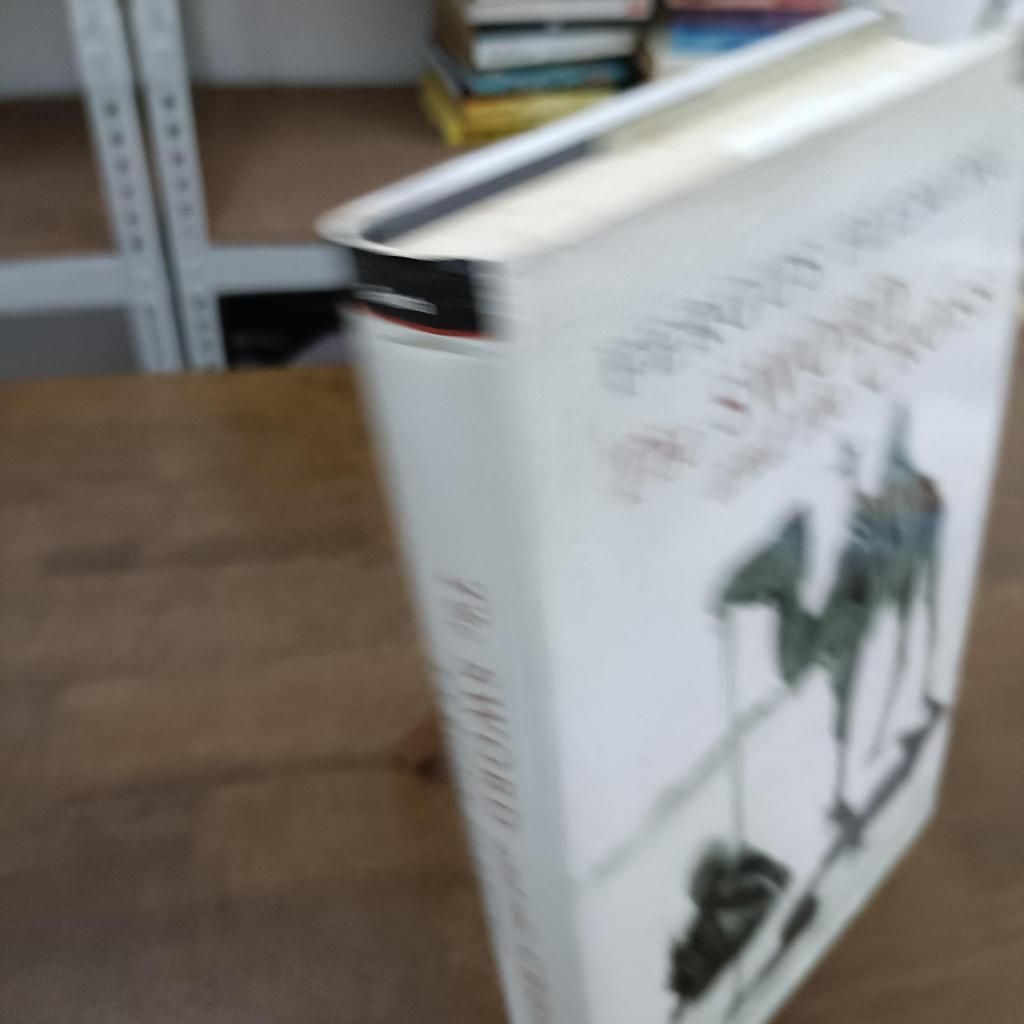The Sword and the Cross: Two Men and an Empire of Sand Fergus Fleming
- Regular price
- RM 2.12
- Sale price
- RM 2.12
- Regular price
-
RM 0.00
Worldwide shipping
Secure payments
Authentic products
Share
1.
A brief history of Algeria. Back in the 17th century it was controlled by Ottomans but controlled by Day pirates whose reputation for violence was known around the world. In 1858 a French consul visited the area and when he refused to pay back a debt, was injured by a Day representative. France seized on this to move into Algeria and found that conquering the Day wasn’t as difficult as they thought. France half-heartedly controlled the quasi-anarchic colony at first but the rule of Napoleon IV gradually strengthened their involvement. See p. 11 for descript of land’s horrors. By late 19th c the people of the land are severely dispossessed.
2.
Charles Eugene, Vicomte de Foucauld is introduced. Brought up as an orphan, rootless, spoiled by grandparents and friendless, he lost his religious faith in his teens and became a layabout, filling his time at the dreaded military academy with pranks on the higher officers. He struggled w. depression and an uncompromising appetite for food. After a particular prank, he was expelled from the academy and sent to Africa, where he was expelled after it was discovered that the wife he had taken with him was actually a mistress. In 1881 France invaded Tunisia and the tribal leader Bu Amama invaded Algeria in retaliation, Foucauld reenlisted. France’s struggle to defend Algeria was wrapped up in a new plan to link Algeria to France’s colonies in the south by conquering the Sahara and effectively colonizing all of West Africa. This allowed them to import goods from these southern country by building a railroad across the Sahara, which they hypothesized contained other great resources.
3
A description of the Sahara which has been controlled by Tuareg nomads whose fierce grip on the area had dissuaded all previous would-be invaders. In 1861 an ambitious young French explorer Duvierier revealed that the Tuareg was not as hostile as they seemed and although subsequent murders disproved this, the French—gripped by a new wave of colonialism and a quest for rapidly diminishing national prestige—chose to try to overtake the Tuareg anyway. Fueled in part by a French engineer’s dream of a Transsaharan railway. See the last pages of the chapter for a description of an ill-fated expedition into the territory that eventually disintegrated into death and cannibalism.
4.
A brief history of Algeria. Back in the 17th century it was controlled by Ottomans but controlled by Day pirates whose reputation for violence was known around the world. In 1858 a French consul visited the area and when he refused to pay back a debt, was injured by a Day representative. France seized on this to move into Algeria and found that conquering the Day wasn’t as difficult as they thought. France half-heartedly controlled the quasi-anarchic colony at first but the rule of Napoleon IV gradually strengthened their involvement. See p. 11 for descript of land’s horrors. By late 19th c the people of the land are severely dispossessed.
2.
Charles Eugene, Vicomte de Foucauld is introduced. Brought up as an orphan, rootless, spoiled by grandparents and friendless, he lost his religious faith in his teens and became a layabout, filling his time at the dreaded military academy with pranks on the higher officers. He struggled w. depression and an uncompromising appetite for food. After a particular prank, he was expelled from the academy and sent to Africa, where he was expelled after it was discovered that the wife he had taken with him was actually a mistress. In 1881 France invaded Tunisia and the tribal leader Bu Amama invaded Algeria in retaliation, Foucauld reenlisted. France’s struggle to defend Algeria was wrapped up in a new plan to link Algeria to France’s colonies in the south by conquering the Sahara and effectively colonizing all of West Africa. This allowed them to import goods from these southern country by building a railroad across the Sahara, which they hypothesized contained other great resources.
3
A description of the Sahara which has been controlled by Tuareg nomads whose fierce grip on the area had dissuaded all previous would-be invaders. In 1861 an ambitious young French explorer Duvierier revealed that the Tuareg was not as hostile as they seemed and although subsequent murders disproved this, the French—gripped by a new wave of colonialism and a quest for rapidly diminishing national prestige—chose to try to overtake the Tuareg anyway. Fueled in part by a French engineer’s dream of a Transsaharan railway. See the last pages of the chapter for a description of an ill-fated expedition into the territory that eventually disintegrated into death and cannibalism.
4.
×
×
Reviews
Be the first to review
Write an review
How would you rate the product?
More thought about the product







